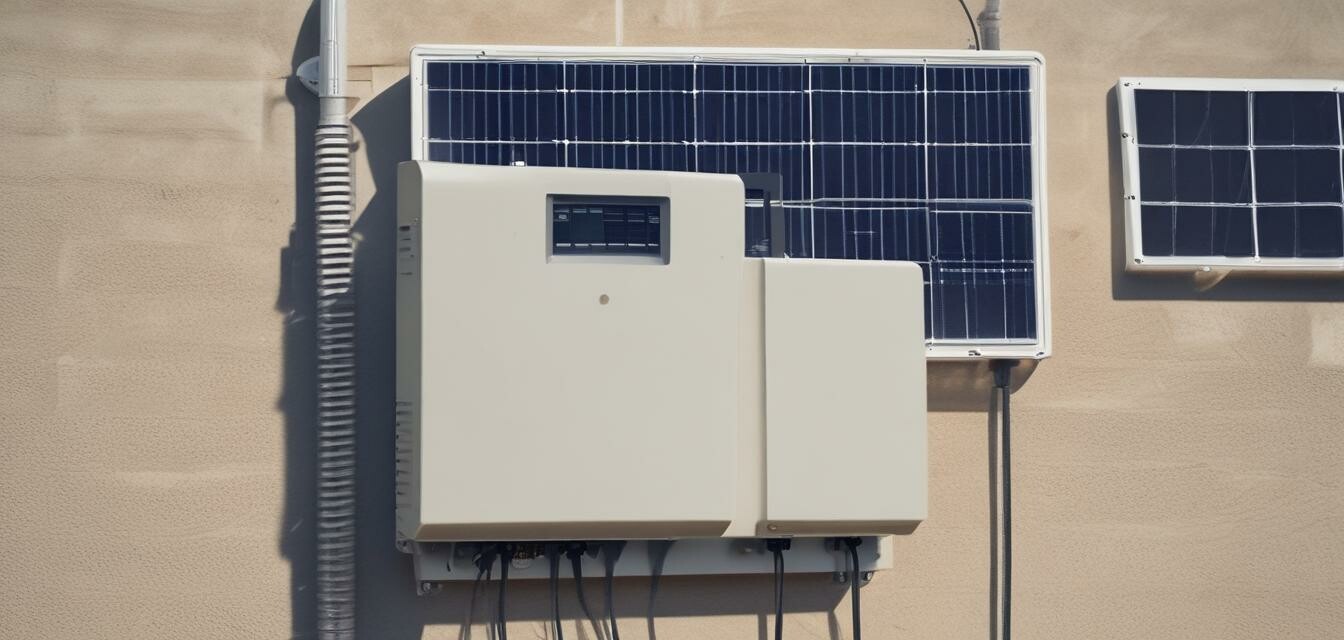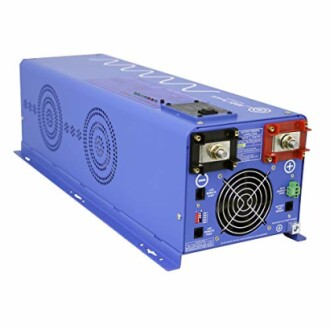
Key Features to Look for in Solar Inverters for 2025
As solar technology continues to evolve, choosing the right solar inverter becomes critically important for achieving efficiency and reliability in off-grid setups. In this guide, we'll discuss the essential features to consider when selecting solar inverters for 2025. This information will help ensure that your solar power system meets your energy needs effectively.
Key Takeaways
- Look for inverters with built-in MPPT technology for optimal performance.
- Choose inverters that support multiple power sources and battery types.
- Consider the inverter's peak power and continuous output rating.
- Evaluate the protection features to safeguard your system.
- Compatibility with monitoring systems enhances usability and efficiency.
Understanding Solar Inverters
Solar inverters are crucial components of solar energy systems, converting the direct current (DC) generated by solar panels into alternating current (AC), which powers homes and businesses. In 2025, selecting the right inverter can significantly impact the efficiency of your energy production. Here are some key features to consider:
1. Maximum Power Point Tracking (MPPT)
MPPT technology optimizes the power output from solar panels by adjusting the electrical operating point of the modules. It maximizes energy capture, especially in variable temperature and light conditions.
2. Hybrid Capability
Consider inverters that can manage multiple power sources such as grid power, solar energy, and battery backup. This ensures a seamless transition between energy sources and enhances your system's reliability.
3. Battery Compatibility
Many modern inverters support various battery types, including lithium-ion, AGM, and gel batteries. Ensure your chosen inverter can work with the specific battery technology you plan to use.
Performance Specifications
| Specification | Details |
|---|---|
| Rated Output Power | The continuous power the inverter can supply, typically measured in watts (W). |
| Peak Power Rating | The maximum power the inverter can handle for a short time, helpful for starting appliances. |
| Efficiency Rating | Indicates how effectively the inverter converts DC to AC; look for values above 90%. |
4. Protection Features
Ensure that the inverter has built-in protection measures such as:
- Over-voltage Protection
- Over-current Protection
- Battery Over-discharge Protection
- Short Circuit Protection
Pros
- Reduces energy loss through optimal performance.
- Improves system reliability with hybrid capability.
- Safeguards against electrical faults, prolonging equipment life.
Cons
- Advanced features often come with a higher price point.
- May require professional installation for optimal performance.
Product Recommendations
Here are a couple of solar inverters that you may find suitable for your solar energy setup in 2025:
SUNGOLDPOWER 10000W DC 48V Solar Inverter
This inverter features a built-in dual MPPT solar controller and supports various battery types, making it versatile for any solar configuration.
Learn MoreAIMS Power 6000 Watt Pure Sine Inverter Charger
Ideal for large applications, this inverter offers robust performance and supports multiple battery technologies, ensuring efficiency in various setups.
Learn MoreConsider Monitoring Features
Inverters equipped with monitoring capabilities allow users to track performance and energy production via mobile applications. Monitoring features can enhance the overall management of your solar energy system.
5. Warranty and Reliability
A reputable brand generally offers a robust warranty. Look for warranties that cover at least 5-10 years. This ensures your investment is protected and provides peace of mind.
Tips for Choosing the Right Inverter
- Assess your energy needs to determine the required inverter capacity.
- Read customer reviews and expert recommendations for insights on real-world performance.
- Consult with a solar professional for personalized advice tailored to your system's requirements.
- Consider the inverter's installation and maintenance requirements before making a decision.
Conclusion
Selecting the right solar inverter is crucial for maximizing the efficiency of your solar energy system. By focusing on features like MPPT, hybrid capabilities, battery compatibility, protection mechanisms, and monitoring options, you'll ensure a successful investment in solar technology. Remember to evaluate your specific needs and consult with experts to make the best choice for your unique situation.
For more insights on solar technology, check out our other resources on Hybrid Solar Systems and Solar System Sizing and Planning.




